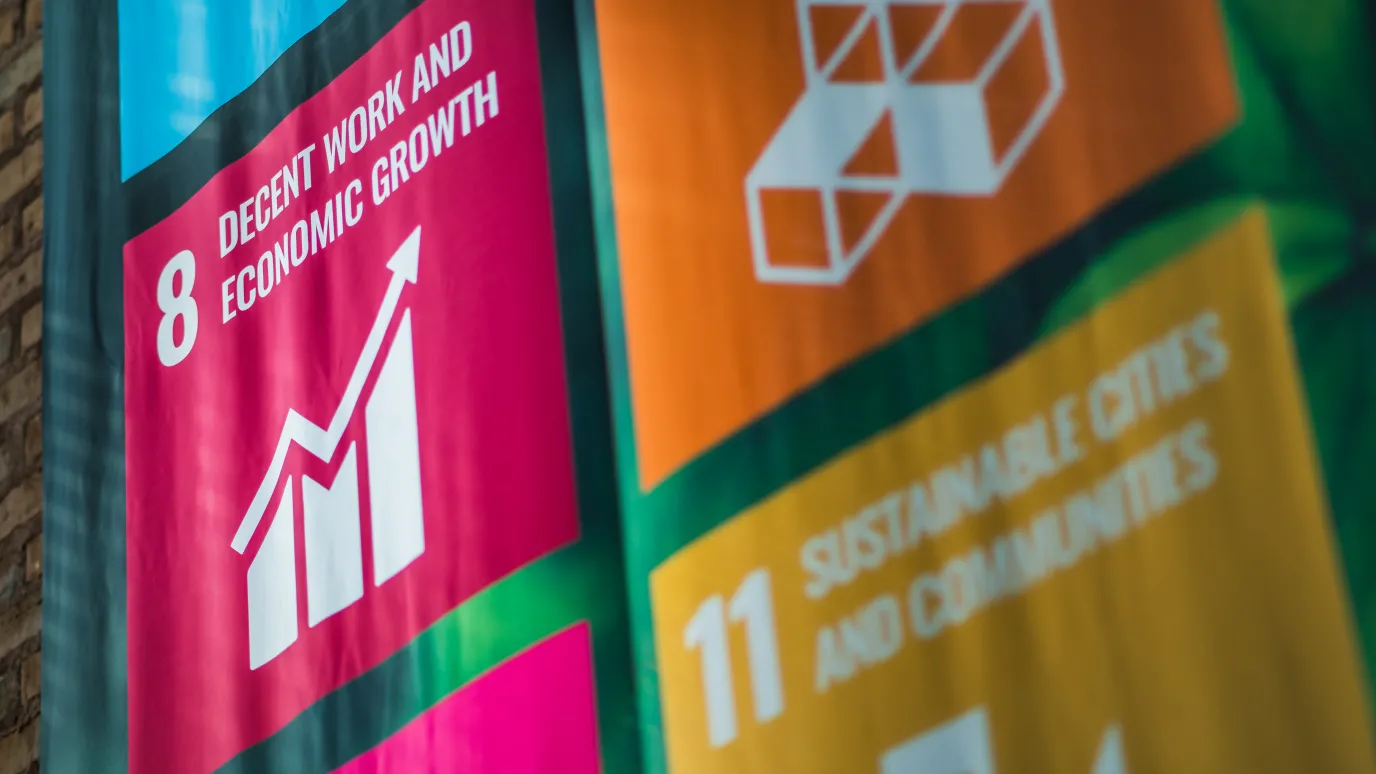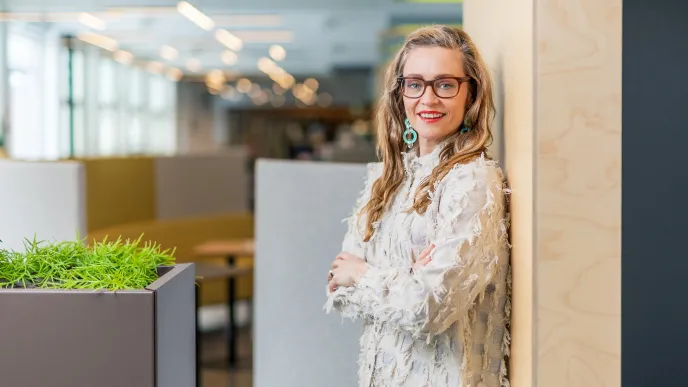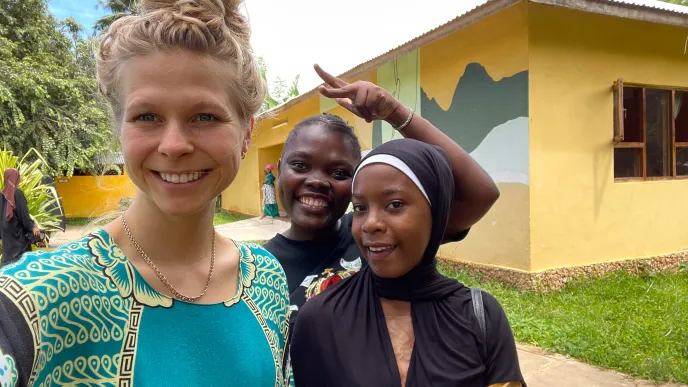Nearly 40 percent of consumers say they have decided against purchasing a product because of responsibility issues, indicates a recent survey by the largest corporate responsibility network in the Nordic countries, Finnish Business and Society (FIBS). According to FIBS, consumers need companies to provide more information to back up claims of product and service responsibility.
"Loss of biodiversity, the climate crisis, and value pluralism create new expectations for businesses. The minor subject Sustainable Business provides students concrete tools to carry out changes in their future jobs,” says Anni Tuppura, associate professor in charge of the English-language minor subject Sustainable Business at the LUT School of Business and Management.
Sustainable business means that a company takes financial, ecological and social impacts into consideration in its own operation and in that of its networks.
“Many Finnish businesses do things very well in terms of responsibility but are not able to communicate it to their stakeholders or clients,” says Anssi Kannisto, a student completing the minor subject.
Kannisto estimates that the minor subject has changed his thinking and helped him understand the importance of responsibility in corporate communications.
“In the future, responsibility will play an even greater role in corporate communications and business models. It will yield added value for all stakeholders,” he envisions.
Flexible study module combining theory and practice
Peppi Segersven has already completed the minor subject and assesses she has become a more discerning consumer and that she now analyzes many choices in terms of responsibility.
”The more I’ve learned about responsibility, the more I pay attention to it in the news and in my personal life. For instance, I’ve lately shopped in flea markets more than I have in years. I want to do the right thing and also promote responsibility in my future career,” Segersven says.
The Sustainable Business module can be completed at any stage of any master’s program. Students can take the whole five-course package or individual courses.
Corporate collaboration is part of the studies. Tuppura mentions that students have enjoyed working with companies on responsibility themes. Students get to choose a company that interests them and develop its responsibility at a practical level.
”Sustainability themes are present in every workplace. The Sustainable Business minor subject provides know-how that students can apply to any job,” Tuppura adds.
Tuppura wants to encourage students to think for themselves: ”The courses feed critical thinking and bring up different angles related to the themes. The teachers are an inspired bunch of people, and the students can see it.”


Sustainable Business minor subject
(five courses)
1 Project course on sustainable business
2 Sustainable strategy
3 Business ethics
4 Advanced topics in business ethics
5 Sustainable reporting and communication
1 Project course on sustainable business
2 Sustainable strategy
3 Business ethics
4 Advanced topics in business ethics
5 Sustainable reporting and communication

Student feedback: Courses meet expectations, wouldn’t change a thing
Segersven declares that all of the minor subject’s courses met her expectations and were interesting. She most enjoyed the course Sustainable Strategy.
"We could pretty freely define our group assignment’s topic, and it was one everybody in our group was genuinely interested in. That’s why it was fun to work on together. We were supposed to utilize empirical material to support theory, and we carried out a survey among our friends.”
Segersven also liked the assignments on the Sustainable Reporting and Communication course – especially the last one, where she came up with improvements to the responsibility communications of the Lappeenranta city administration. Segersven believes that studying and developing responsibility strategies will be of most use to her in the future.
Segersven is a student of the Supply Management master’s program, and Sustainable Business was the obvious choice for her as a minor subject from the outset.
”I find the topic fascinating, and it complements my major subject very well. Sustainable business principles are an essential part of supply management, and I’d like my future work to involve them,” she says.
Kannisto from the International Business and Entrepreneurship (MIBE) master’s program has one course left of the Sustainable Business module. He’s finishing the last one this fall.
”I feel a minor subject is supposed to give a general idea of the topic area so that you can apply what you know at work. The courses have done an excellent job at this, and I wouldn’t change a thing. The module strikes just the right balance between theory and practical work related to corporate responsibility.”
Meerimaria Ketokulta, also from the MIBE program, feels practical business examples and real-life cases will help her the most in the long run. Ketokulta has completed all of the module’s courses.
”It’s valuable to see the same topic area dealt with in different sectors and companies; responsible business may manifest itself differently in different companies,” she says.
”Responsibility should amount to more than marketing slogans or report padding. It should be integrated into the strategy and business model. When you understand responsibility and know the laws that govern it and the opportunities it provides, it’s easier to introduce into the organization,” she adds.
In Ketokulta’s opinion, the best thing is that know-how related to responsibility can be applied to any kind of work from traineeships to management. She especially enjoyed the course Sustainability Reporting and Communication.
”We got to study a wide range of responsibility and annual reports and responsibility communication standards, calculate emissions and write a responsibility report. The course examined communication from the perspectives of an external assessor and the company itself. As we could choose which companies to study, we were able to zoom in on the sector that interested us the most,” she explains.
Science and research feed positive development
Kannisto recommends the minor subject to anyone interested in making an impact in future businesses. Segersven and Ketokulta agree and consider the module suitable for students of many backgrounds.
”Our planet has certain boundaries, and crossing them will make it uninhabitable for future generations. We need to change the way businesses operate before it’s too late,” Kannisto maintains.
Although world news may seem hopeless, Anni Tuppura wants to instill hope for the future in her students: ”It’s human nature to seek solutions to problems. If there’s a will, there’s a way. Science and research help to define what we can do and how.”
See more news on the topic:
Corporate activism
- Four steps to corporate social responsibility communication
- Corporate social responsibility may be a two-edged sword
Sustainability actions
More information:









